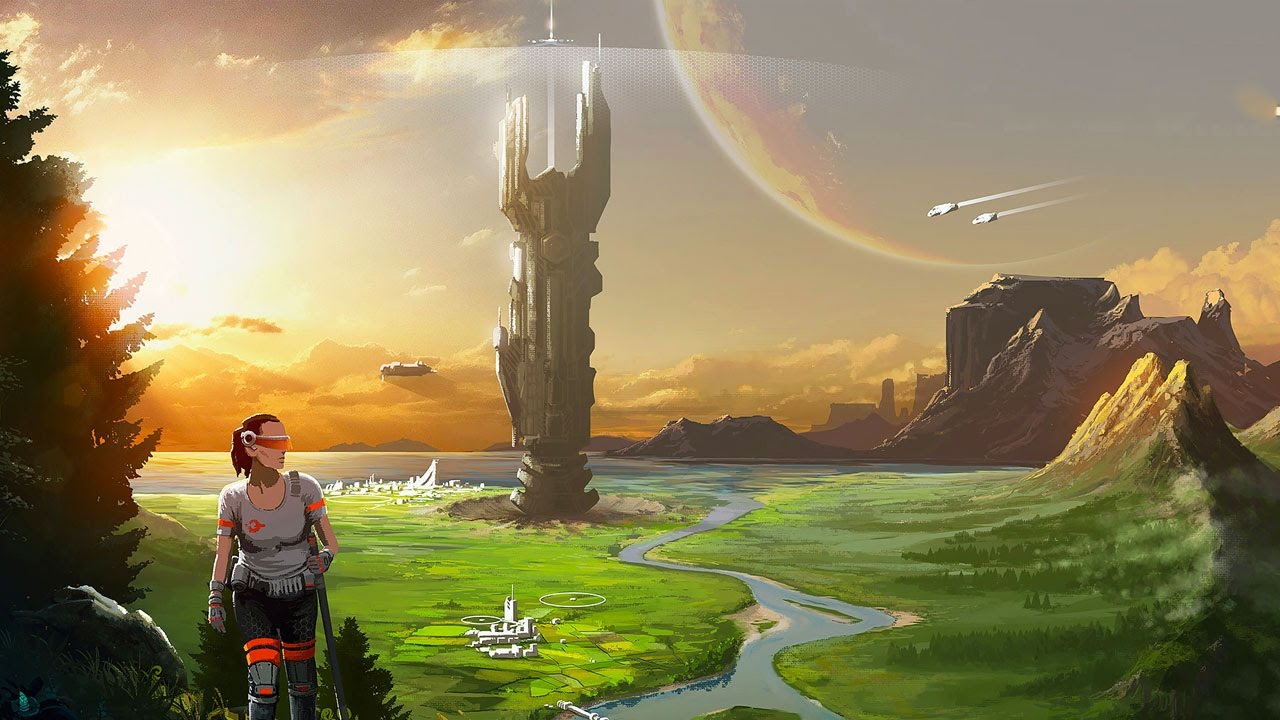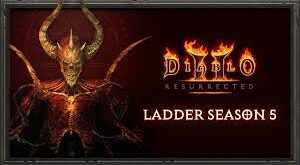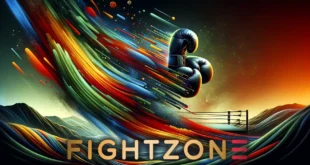SingStar (2004)
Karaoke complexes might be relatively common now, but back in 2004 singing into a PlayStation was the closest most of us could get. SingStar’s discs of party classics formed the caterwauling soundtrack to millions of student gatherings, hen parties and five-pint Fridays all over Europe for more than a decade. Like Just Dance, it harnesses the infectious joy of pop music in a way that anyone can play.
Katamari Damacy (2004)
A gleeful absurdist masterpiece in which you start by rolling up pencils and apple peel and end up absorbing buildings, trees and, eventually, most of the planet in your big sticky ball, because why not? From the infectious soundtrack to the endearingly mad “plot”, it’s a work of pure joy.
Journey (2012)
Journey is a short and moving shared experience whose music, evocative colour palette and simple play come together as they only can in games, for a powerful emotional effect. It’s often picked as an ur-example of games as art – including by curators at the V&A, where it was front and centre at a recent exhibition.
Dead Space (2008)
Resident Evil meets Alien seems like such an obvious game pitch that it is incredible it wasn’t realised until 2008. In Dead Space, the player becomes lowly engineer Isaac Clarke, who finds himself investigating the “planet-cracking” ship Ishimura after radio contact with the vessel is lost. The craft is, of course, infested with alien creatures – the Necromorphs – who utilise the reanimated corpses of human victims in horrible ways. This is a dark, bloody and atmospheric survival-horror thrill ride.
Limbo (2010)
The central character here is a boy on the run from death, or perhaps already dead. One of several games that kicked off the indie-game renaissance of the 2010s, Limbo’s monochrome style and relatively short running time belie the extraordinary effort and fastidiousness that went into its creation, evident in everything from the sinister movements of a giant spider to the precise physics that power its puzzles.
Papers, Please (2013)
You are a border officer in a war-torn country where people are constantly trying to smuggle things past you: drugs, weapons, falsified IDs. But what about the mother and young child using a fake passport to rejoin the rest of their family? Or an undocumented refugee who you could reject as a possible terrorist, but who may in fact be a desperate civilian? Papers, Please is a powerful illustration of how we can become complicit in inhumane systems, and the ways games can invite us to explore complex ethical dilemmas.
Forza Horizon (2012)
Combining an open-world structure with the energy of a music festival, Forza Horizon made arcade-style racing games fun again. Boasting a gigantic selection of cars and an inventive AI-assisted multiplayer component, the game was designed around simply letting the player have fun, no matter what they did or where they drove. Barn finds and destructible signs rewarded exploration, while a multitude of driving challenges provided structure and challenge. It’s an accessible, multifaceted racing treat.
Rocket League (2015)
“Football, but with remote control cars” is a likely pitch for Rocket League, but who expected it would become one of the most skilful and enduring multiplayer games released in decades? Rocket League is elegant and ageless: it will probably still be played in 20 years, in living rooms and in tournaments.
Burnout 3: Takedown (2004)
Guildford-based developer Criterion built its Burnout series of arcade driving games around two principles: speed and style. Taking place through traffic-packed city streets, the races rewarded players for risky manoeuvres, providing extra time to shoot past competitors. The third title in the series perfected the recipe, adding a “takedown” feature that encouraged players to smash rivals from the circuit. The detailed slow-motion physics engine heightened every smash into art.
Overwatch (2016)
After years of gritty, military shooters filled with macho spec-ops nobodies, Overwatch stormed on to the online gaming scene in 2016 like a giant kawaii robot bunny wielding a hot pink grenade launcher. This is a game about outlandish hero characters, joining forces in condensed team-based skirmishes. There is no levelling up, there are no weapons unlocks; it’s all about combining the different capabilities – from Mei’s endothermic blaster to Mercy’s healing staff – in effective ways. Loved for its brash, hyper-colourful aesthetic, Overwatch is the generation Z answer to Counter-Strike.
Gears of War 2 (2008)
Imagine a science-fiction war film directed by an early-career Kathryn Bigelow. Now imagine it’s interactive. This, in essence, is Gears of War, the definitive third-person space marine blast-’em-up – a game so macho, its machine guns have chainsaws. The second title in the series improved the cover system, added new weapons and bloody finishing moves and took the battle to the Locust alien invaders. It was thrilling, chaotic and beautiful and, with the brilliant co-op Horde gameplay mode, it invented new ways to play online.
Tony Hawk’s Pro Skater 2 (2000)
Fondly remembered by anyone who had a PlayStation in their dorm room, this is still probably the best skateboarding game around, and there hasn’t been much competition since (perhaps due to the sport’s waning cultural presence since the 1990s). It is a time capsule of energetic college rock, endless point-chasing skate combos and irresistibly fun play.
Super Smash Bros Melee (2001)
The 2018 game Ultimate is, well, the ultimate expression of Smash Bros’ maximalist tendencies, with 74 characters and hundreds of references to Nintendo history. But Melee is the game that turned Nintendo’s anything-goes brawler from a living-room classic into a competitive fixture. It is still the most popular Smash game at tournaments, beautifully balanced and extraordinarily fun.
Silent Hill 2 (2001)
Konami’s answer to Resident Evil ditched zombie shocks for psychological horror. The second title in the series is the most disturbing. The game follows grief-stricken everyman James Sunderland as he arrives in the eponymous town searching for his supposedly dead wife. What follows is a descent into Sunderland’s psychosexual dysfunction, a viscera-splattered nightmare of undead nurses, animated shop window dummies and the giant fetishistic monster, Pyramid Head. Toying with Japanese horror and exploitation cinema, it cast a sombre spell over all who played.
Spelunky (2008)
Derek Yu’s cave-diving platform game is fun to play on every single run, yet might take years to actually finish. Each time a different arrangement of cave creatures, unfortunate accidents and hostile geography conspires to bring your adventure to an abrupt close, and only the extremely skilled and extremely lucky will ever get right down into the depths. Even after years of play, Spelunky holds its mystique.
Assassin’s Creed 2 (2009)
The original Assassin’s Creed promised a rich historical adventure with an interesting sci-fi overlay – Assassin’s Creed 2 actually delivered it. Set in a luxuriously detailed approximation of Renaissance Italy, the game sees attractive assassin, Ezio Auditore da Firenze, taking on the dastardly templars while bumping into the likes of Machiavelli and Leonardo da Vinci. The freeform structure of the game, its mass of side quests and objectives, along with its range of abilities and items set the blueprints for modern open-world game design.
Batman: Arkham Asylum (2009)
With a script by veteran Batman writer Paul Dini and all the key voice talent from the brilliant animated series, Arkham Asylum exudes authenticity from every pixel. This is the Batman of Frank Miller and Christopher Nolan – dark, twisted and violent – and it’s perfectly realised as a third-person action adventure. The combat is smooth and empowering, the silent takedowns are gratifying and the asylum setting is a superb gothic monstrosity. A comic-book lover’s dream.
Battlefield 1942 (2002)
With the first title in the Battlefield series, developer Digital Illusions brought large-scale cooperative combat and historical authenticity to the online shooter genre. Two teams of 32 players fought for dominance of vast environments, taking control points and commandeering vehicles. The multifaceted battles required players to assume complementary roles, some sniping from a distance, others running in as infantry. The excitement of a well-organised attack paying off felt like something truly new.
Call of Duty 4: Modern Warfare (2007)
Bringing cinematic verve and explosive pace to the military shooter market, 2003’s Call of Duty provided gunfights of epic intensity. But it wasn’t until Modern Warfare that the series made a major impact, introducing an innovative multiplayer online mode that offered character progression alongside unlockable single-use mega-attacks. Add in its blistering animation and intense, claustrophobic maps, and it’s little wonder this game defined the online deathmatch experience for a decade.
God of War (2018)
God of War still sets the bar for its genre of expansive, visually spectacular interactive storytelling. Guiding a reformed violent god and his more sensitive son through settings from Norse mythology, you’ll see things that take the breath away: the corpse of an immense giant, frozen where he fell; parallel realms of vicious elves and shining, endless lakes; crumbling relics to absent gods. The pleasing thwock of Kratos’ axe as it hits the skulls of mythological monsters punctuates video games’ grandest odyssey.
Shadow of the Colossus (2005)
In this meditation on the selfish nature of grief, a young man sets out to topple mountainous, mournful and majestic giants in the hope of reviving a lost love. Each colossus is a puzzle; clambering up their mossy fur and plunging a sword into their hides, we soon learn that this hero’s quest isn’t what it seems. Subtle and profound, Shadow of the Colossus is disciplined in its storytelling and artistic direction, with ample space for reflection in its bleak and beautiful wilderness.
Deus Ex (2000)
Combining first-person shooter and action role-playing with real-world conspiracy theories and cyberpunk mythology, Ion Storm’s agenda-setting sci-fi adventure was a cultural event. The player character, JC Denton, is a “nano-augmented” government agent caught in a labyrinthine, globe-stomping plot about bioengineered viruses and alien technology. There are dozens of routes through the story, providing incredible freedom and inspiring a creative community of modders and fan-fiction writers.
Wii Sports (2006)
Few games have been played as widely as Wii Sports, from grannies bowling to toddlers enthusiastically playing tennis. Wii Sports was the world’s introduction to the Wii and a whole generation’s introduction to Nintendo’s philosophy of game design: accessible, inclusive and great fun.
Guitar Hero (2005)
What warm-blooded person has never dreamed of busting out an impeccable guitar solo on stage, revelling in the adoration of a baying crowd? Anyone born after about 1995, it turns out. But Guitar Hero was a product of its time and catered so brilliantly to the near-ubiquitous rock star fantasy, with its impeccable soundtrack of 1970s, 80s and 90s power rock, that tens of millions of people were wielding plastic guitars in living rooms within a couple of years.
Left 4 Dead (2008)
A co-op online zombie shooter with an AI system that orchestrated enemy attacks based on player actions, Left 4 Dead was ridiculously ahead of its time. Valve built excellent mechanics around its collaborative gameplay, encouraging highly tactical teamwork, and loaded its apocalyptic world with brilliant monsters, such as the grotesque tongue-lashing Smoker and the terrifyingly lachrymose witch. It would do amazing business in the multiplayer-obsessed, YouTuber-streaming world of modern gaming.
Ico (2001)
Experimental designer Fumito Ueda built this quiet, thoughtful adventure around the idea of two people holding hands, which is what the eponymous lead character and jailed princess Yorda must do if they are to escape their castle prison. Using all the conventions of a third-person action game, Ico is really about fear, solitude and the possibilities awakened by making physical contact with another human being. A minimalist masterpiece.
The Last of Us (2013)
What looks at first like a standard entry in gaming’s extensive zombie-apocalypse canon soon turns out to be something more. Watching the relationship between grieving, grizzled Joel and guarded but optimistic teenager Ellie develop as they travel a ravaged America, creeping past unsettling “clickers” and coming face-to-face with desperate, violent fellow humans makes for an extraordinarily memorable game in an often boring genre.
The Legend of Zelda: Majora’s Mask (2000)
Possibly Nintendo’s most unsettling game, Majora’s Mask is also one of its most creative, trapping you in an apocalyptic time loop where the leering moon draws ever closer to the hapless Earth and its denizens cower in fear. Here, Link is a hero that nobody knows about, having gone forward in time to thwart an evil that was due to swallow up the world, before being returned to his childhood body and deserted by his only companions. Its time-loop structure and eerie atmosphere remain little-imitated.
Mario Kart 8 (2014)
We have yet to encounter a person who doesn’t enjoy Mario Kart, and Mario Kart 8 is as good as it gets: gleeful, freewheeling, with a marvellously jazzy score, colourful characters and courses that continually defy expectations. It is riotously enjoyable. One of the few modern games that is still best enjoyed shoulder-to-shoulder with friends, family or friendly strangers.
Mass Effect 2 (2010)
The defining chapter of BioWare’s space epic tackles everything: race, genocide, romance and heroism, all against a backdrop of impending galactic doom. It is brilliantly performed and exciting to play, with futuristic guns and biotic powers, and totally engrossing on a character level. Creating something of this scope that also feels personal to each player is no small feat.
Fortnite (2017)
Launched as a forgettable co-op zombie shooter in 2017, developer Epic Games saw the success of Player Unknown’s Battlegrounds and decided to create its own battle royale mode, inviting 100 players to land on an island, then fight it out until only one survived. Colourful, silly and filled with daft outfits and infectious dance moves, Fortnite became a global phenomenon, attracting more than 250m players. It’s been featured in everything from Fox News to Avengers: Endgame and shows few signs of slowing down.
Grand Theft Auto IV (2008)
Niko Bellic comes to New York looking to escape the life of crime he had been leading in eastern Europe – but as in all Grand Theft Auto games, the American dream swiftly turns sour, and nihilistic violence turns out to be the only currency Bellic can deal in. GTA IV’s New York is stunning to inhabit, so detailed and full of life that it is hard to believe it’s powered by code.
Red Dead Redemption 2 (2018)
Only a developer with Rockstar’s extremely deep pockets and fanatical attention to detail could have made something like this, a re-creation of turn-of-the-20th-century US so lifelike that it is at times difficult to believe. Its story, of a dwindling gang of outlaws trying to outrun the march of time (and an ever-growing list of enemies) is impressive enough, but the world in which it takes place – vast, picturesque, full of people and strange encounters that most players will probably never even find – is a true monument to interactive achievement.
The Sims (2000)
One of the most successful and influential games ever made, The Sims is an outlet for megalomania, mad materialism or compassion – depending on the player. Controlling the lives of computer people, from their loves and careers to designing the homes they live in, is so compelling that it raises troubling questions about human nature.
Uncharted 2: Among Thieves (2009)
Indiana Jones-style hero Nathan Drake came into his own in this spectacular cinematic adventure sequel. Crammed with breathtaking action set pieces, exotic locations and exciting lore, Among Thieves established the Uncharted series at the forefront of big-budget narrative game design. From the wrecked train opening to the epic finale amid the ruins of the mythical kingdom of Shambhala, the pace doesn’t let up. While baby boomers have nostalgic memories of Saturday-morning action cinema, millennials have Uncharted.
Resident Evil 4 (2005)
This wasn’t just an exciting horror story about a supercop rescuing the US president’s daughter from a Spanish cult. With Resident Evil 4, the creator of Capcom’s survival horror series, Shinji Mikami, completely changed the structure and style of the games, abandoning the slow-burn tension of the original titles in favour of raw action while (crucially) shifting from an expressionistic third-person camera to an over-the-shoulder perspective. The game established a whole new era of third-person shooters.
Super Mario Odyssey (2017)
After his galactic adventures in the Super Mario Galaxy games, Odyssey brought the cheerful plumber back down to Earth. Well, not Earth per se, but a bunch of different self-contained planets that provide ample room for Nintendo designers’ wild imaginations. From possessing a Chain Chomp to bounding around in low gravity, chasing rabbits or racing yetis, Odyssey is irresistibly exuberant.
World of Warcraft (2004)
Launched in 2004, Blizzard’s massively multiplayer role-playing adventure was not the first entry in this complex genre (Ultima Online and Everquest got there earlier), but it perfected the key elements, from combat mechanics to quest design to background lore, building an obsessive fanbase that has stayed loyal through multiple add-ons and updates. The game reached 100m player accounts in 2014, but the real stories have been much more personal – with its emphasis on close team-play, WoW has hosted real-life weddings and funerals, becoming as much a part of players’ lives as their own families.
Metal Gear Solid V: The Phantom Pain (2015)
Bloated, idiosyncratic and troubling in places, The Phantom Pain is the perfect culmination of Hideo Kojima’s Metal Gear vision as it has evolved over the last 30 years. Big Boss wakes up from a coma and finds himself carrying out covert missions during the Russian invasion of Afghanistan, rescuing civilians, kidnapping military leaders and managing his aquatic Mother Base as the typically nonsensical plot rolls on. It is unlike anything else out there … at least until Hideo Kojima’s forthcoming game Death Stranding turns up.
The Elder Scrolls V: Skyrim (2011)
For decades, games have aspired to create a fantasy world that caters to your every whim – and Skyrim comes closest. Dragon-flavoured, largely unmemorable plot notwithstanding, it is an extraordinary playground where magic, might, words and weapons can all be wielded against the inhabitants and monsters that populate a snow-touched northern realm, and where subplots about assassins, vampires, lost relics and a thousand other things await the curious player.
Bloodborne (2015)
An extraordinary work of horror, Bloodborne conjures a dilapidated city whose inhabitants, rather than abandoning God, have become so obsessed with getting closer to their eldritch masters that they’ve become diseased. Hunting the creatures of Yharnam, an exhilarating and sometimes painfully challenging endeavour, the player uncovers an extraordinarily intricate, disturbing fiction of blood, beats and human folly. There are sights and fights in Bloodborne that no player could ever forget.
BioShock (2007)
Set in a doomed undersea utopia, BioShock is part shooter, part role-playing game, part morality fable, propelling players through a haunting and ambiguous quest to escape Rapture while learning its awful secrets. Famed for the hulking Big Daddy antagonists, the genetic modifications, the art deco architecture and designer Ken Levine’s exploration of objectivist philosophy, the game has been one of the most discussed and dissected of the century so far.
Portal 2 (2011)
Building on the solid foundations of its predecessor, Valve’s 2011 sequel adds a more involved narrative to the ingenious physics puzzles, with tyrannical computer system GLaDOS providing an endlessly funny and inventive exploration of humanity and hubris. Here, the Aperture Lab is a giant, almost gothic, ludological construction, its weird research rooms and robotic production lines crammed with light bridges and lasers. It is the combination of Red Dwarf, 2001 and Crystal Maze no one knew they were waiting for.
Halo: Combat Evolved (2001)
One of the first shooters where the aliens fought back. Playing Halo today, especially on the Legendary difficulty setting, it is amazing how quickly those chattering, cackling Covenant can flush you out. Halo has spawned a beloved universe of space-opera shooters, but it’s the first game – released at a time when the idea of a first-person shooter on a console was laughable – that made the biggest impact.
Grand Theft Auto V (2013)
In this, the best-selling entertainment product of all time, Rockstar painstakingly created a bizarre pastiche of southern California, seen through the eyes of three decidedly unheroic protagonists: a retired gangster whose family hates him, a young man from the inner city trying to escape a seemingly pre-destined life of crime, and a violent trailer-dwelling psychopath. Cleverly, these three characters also handily partition GTA’s split personality: biting satire of modern US, filmic storytelling, and directionless violent mayhem.
The Witcher 3: Wild Hunt (2015)
Many games offer the superficial choice between good and evil, but the Witcher asks what happens when you’re adrift on waves of history and politics that are beyond your control. Geralt of Rivia isn’t a hero; he’s just an outcast, present at a tumultuous time in his realm’s history. Turns out that far more interesting stories can be found when you’re not preoccupied with a facile objective to save the world.
Half-Life 2 (2004)
Video games aren’t short of alien invasion stories but Half-Life 2 is so good it makes the whole concept seem fresh and frightening. Taking place several years after the original, Gordon Freeman wakes to find an Earth utterly subjugated by the Combine forces – but a resistance movement is forming. The shrewd environmental puzzles and the famed gravity gun exploit the intricate physics engine to make this hellish world feel authentic. You truly hate the enemies, you live every moment. One of the greatest narrative video games ever made.
Dark Souls (2011)
You are dead, which comes with few advantages, but at least you can’t die again – not for good, anyway. Plunging you into a never-ending cycle of death and rebirth in a world where almost nothing still breathes, Dark Souls sets you off with nothing and lets its horror-tinged dark fantasy unfold as you flail and struggle to survive. Invigoratingly uncompromising and influential, it was the breakthrough game of FromSoftware and visionary director Hidetaka Miyazaki. Despite two more Dark Souls games and a raft of imitators, there is still nothing like it.
Legend of Zelda: Breath of the Wild (2017)
Doing for the open-world game what Half-Life 2 did for the first-person shooter, Breath of the Wild tears up and throws away all the things that make exploration a chore – checklists, objective markers, forests of icons – to make way for true adventure. Breath of the Wild counts on your curiosity, intelligence, self-determination and ingenuity, giving you a thousand ways to apply them. Its thrillingly open wilderness makes other games feel like a quaint miniature train ride by comparison.
Minecraft (2009)
Swedish coder Markus “Notch” Persson didn’t invent the concept of the block-based building game – Minecraft arrived just after Zach Barth’s experimental title Infiniminer. However, the founder of Stockholm studio Mojang took the idea of a Lego-like construction game based in a procedurally generated environment and perfected it. Originally launched as a work in progress in the summer of 2009, word about this unusual blocky simulation quickly spread on PC gaming forums and a community of enthusiastic modders started to gather around the project, downloading Persson’s version but adding their own rules and graphics. From the very beginning Minecraft was a shared endeavour – a labour of love, shared between creator and fans.
By the time of its full release in November 2011, Minecraft already had 10 million registered players. Later came conversions from PC to Xbox, PlayStation and smartphones, bringing in new audiences. The game was split into two experiences: the Survival mode where players had to battle zombies and giant spiders while mining for resources, and the Creative mode where they were given an unlimited inventory of wooden, glass and stone blocks to concentrate on crafting their own ambitious projects.
This has always been the vital element of Minecraft’s success and importance: it is a dozen experiences in one. It’s about making models, but also exploration, combat and resource management. Participants can build alone or join friends, introducing a new form of online creative collaboration. Using the game’s red stone component, which allows objects in the world to be electrically powered, fans began to build complex machines including working calculators. Others constructed scale models of the USS Enterprise, Hogwarts and King’s Landing. Art galleries and museums began to take notice. The Tate Modern commissioned expert modellers to create versions of modernist artworks in the Minecraft world; the British Museum was officially recreated in the game, as was Great Ormond Street Hospital.
Over the past decade, Minecraft has become a hobby and a social space. Servers have been set up for people on the autistic spectrum, providing a vital means of meeting with and communicating with others. Hundreds of schools throughout the world use the Education edition of Minecraft to teach physics, geology, drama, art, electronics and sustainable farming. The cultural and educational reach of the game is enormous. Minecraft was vital in the rise of the celebrity gaming YouTuber – with names like StampyCat and DanTDM familiar to millions.
With more than 175m copies now sold on an array of devices from smartphones to virtual-reality headsets, Minecraft has transcended the idea of what games are and what they can achieve. When you load the game, what you do is up to you – it gives you the experience you want, and that is different for everyone. There has never been an interactive entertainment experience like it. Game makers truly believe that video games have the power – just like literature, cinema and art – to change lives. This one unquestionably, demonstrably has. Time and time again.
If you are a writer then you can write for us
 Lifeyet News Lifeyet News
Lifeyet News Lifeyet News





